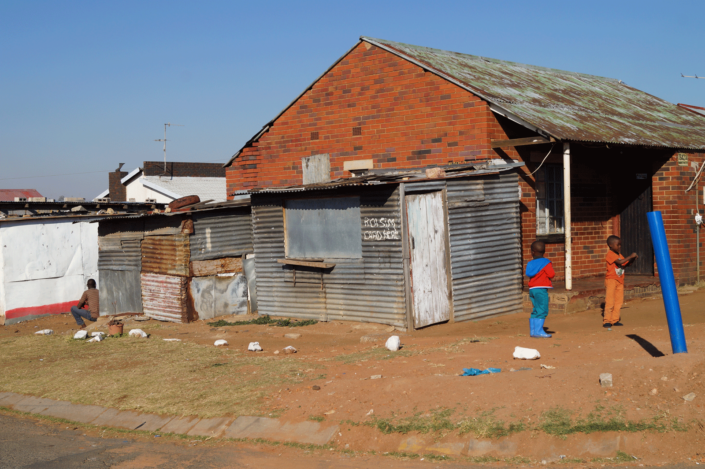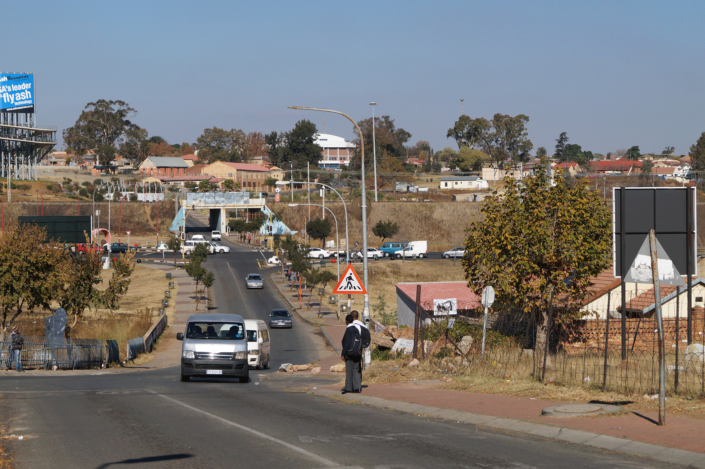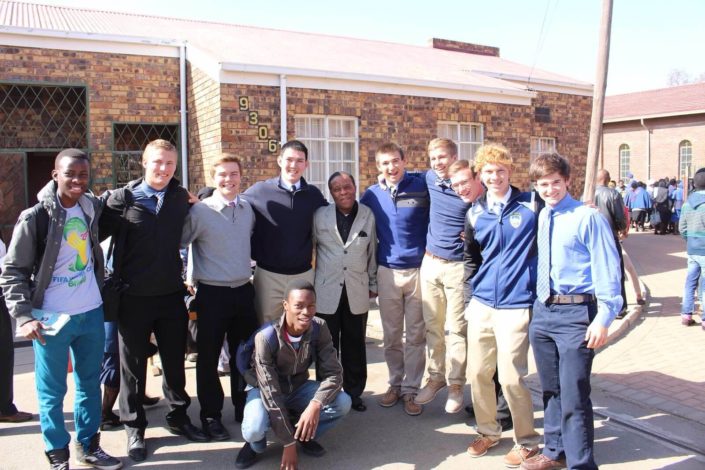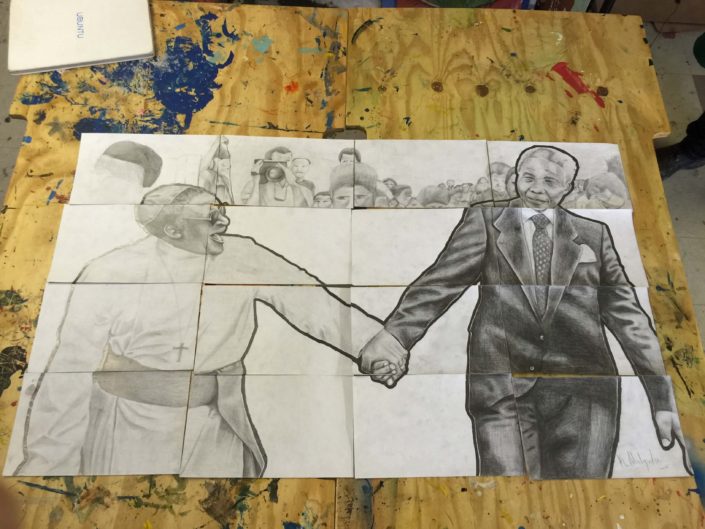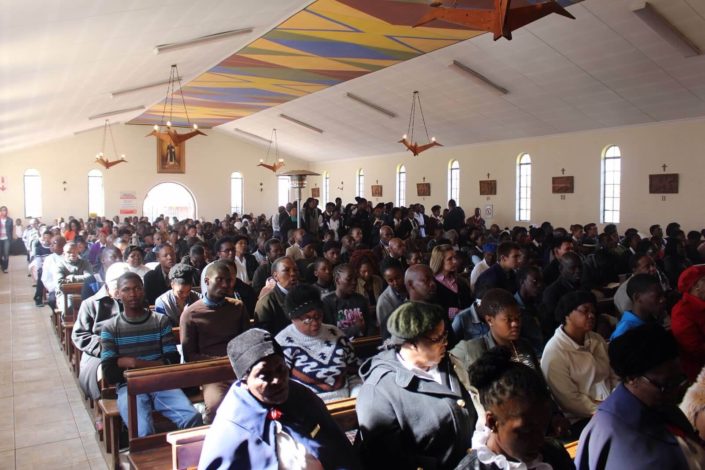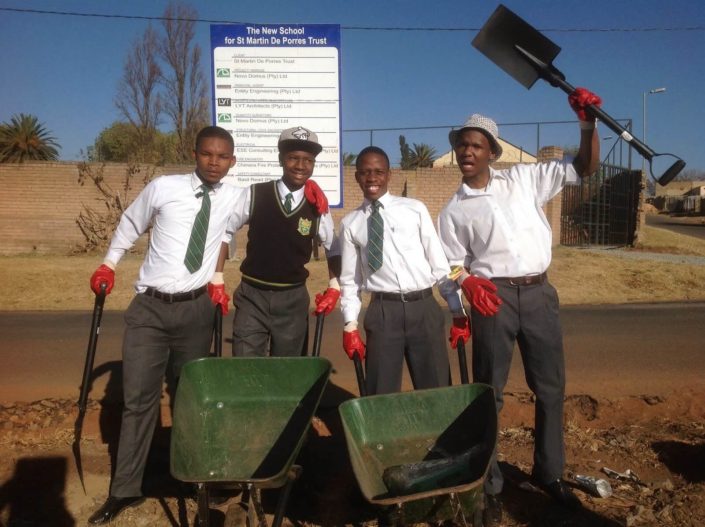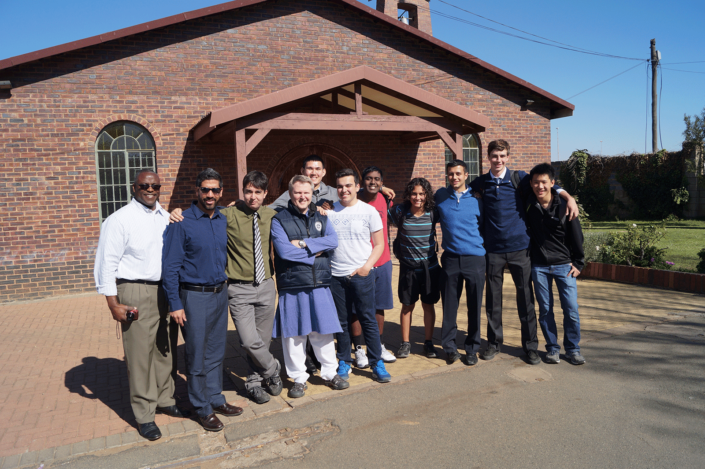With recent events of racial discrimination, violence, and economic injustice in the U.S., we have come to see the parallels between the South African and American struggles. As Tshegofatso and other friends in Soweto have taught us, rather than seeking direct answers to solve these issues through positions of power, we have come to hope that the response would be to engage in dialogue and continue to ask the same questions back home that Soweto has prompted us to explore. Whom have I been ignoring? What is their story? What are their sources of pain?
Meet the Team
 Drew Descouruez
Drew Descouruez
Santa Clara University
Drew Descourouez is a first-year student at Santa Clara University. Drew traveled to Soweto, South Africa in 2013, on Bellarmine College Preparatory Immersion trip. He has since traveled to nine other countries around the world and developed a deep desire to connect cultures through storytelling and personal relationships. Drew is also passionate about youth empowerment and hopes to learn more from his friends in Soweto about how young people can take responsibility for a shared future in a globalized world.
Soweto is a township in the city of Johannesburg, South Africa. The name “Soweto” is an abbreviation for “South Western Township,” which explains its geographic position relative to Johannesburg. Today, Soweto is integrated into the City of Johannesburg, but the history of its formation highlights the racial segregation enforced under apartheid law. After the Afrikaner-dominated National Party rose to power in 1948, they began to enforce apartheid law, which culminated in the Group Areas Act during 1950. This act assigned racial groups to different residential areas. As a part of this, blacks were forced out of formal cities and out of tribal villages and into condensed zones in order to concentrate them into smaller areas. To administer the Group Areas Act in the Johannesburg area, the government began building compact housing units southwest of the city in 1956, and in 1963, this area became formally known as Soweto—a black township on the outskirts of Johannesburg where nearly a million people were concentrated and dismissed.
With a system of institutionalized poverty and oppression, opposition against corruption became a continuous theme in Soweto. Soweto became the birthplace for the African National Congress (ANC), which later became Nelson Mandela’s ruling party during his presidency. Soweto was also at one point the home to many of South Africa’s heroes, including Mandela himself and Desmond Tutu. While opposition against the apartheid government rose in Soweto, this culminated in many acts of violence, such as the 1976 Soweto uprising, in which police opened fire on over 10,000 protesting students, killing hundreds of them in the process. With its dark history, Soweto today suffers from many of the residual effects of the apartheid regime. Soweto alone has an unemployment rate of 53% and South Africa has a Gini Coefficient of 63.4%, meaning that it continuously measures to be one of the most unequal countries in the world by measure of income distribution. This inequality is centered in Soweto, as its poverty comes in stark contrast to Johannesburg, which is the financial capital of South Africa, thus making it the richest city in South Africa. In the midst of this disparity, Soweto is still filled with the same drive to fight against oppression that has produced progressive change within corrupt constructs. While there is still a long way to go, many communities in Soweto, such as St. Martin de Porres Parish and School in Orlando West, Soweto, are building the leaders of future generations that give hope to the Soweto narrative.
Photo above: A vendor sells Soweto goods. Photo credit: South African Tourism//Flickr
Students walking to class at St. Martin de Porres School
History of St. Martin de Porres, Orlando West
Orlando West has its origins in the “Orlando Shanty Town” that grew up during the Second World War when the black population of Johannesburg grew in leaps and bounds. The Oblates of Mary Immaculate at Orlando East saw the need for another parish for these estimated 20,000 people. Father Albert Vandenbussche OMI established the “Blessed Martin” parish in 1946. A foundation stone was laid by Bishop O’Leary on the feast of the Assumption that same year. That building served as a school during the week, and as a Mass center on Sundays. Now the school offices, computer center, and senior classrooms of St. Martin de Porres School, it remains as one of the oldest buildings in Orlando West. The Marist Brothers were the first teachers at this school, followed by the Sisters of Notre Dame de Namur.
Father Vandenbussche was succeeded by his assistant, Father Daniel Verstraete OMI, later Bishop of Klerksdorp, in 1953. Father Verstraete oversaw the building of a hall and a church. Much of the work was done by the priest and people themselves using bricks from buildings demolished in town. This was amongst the earliest church buildings to consciously use African art and crafts in the interior design.
By the mid-1950s, the school went up to sixth grade. One thousand children were taught in two shifts – the first ending at 1pm, and the second around 5.30pm. These children were fed too. From 1947, the school had catered for primary school children, but in 2003 it was decided that Soweto needed another Catholic high school, and St. Martin’s was the chosen site. With each successive year, the conversion took shape as the lower classes began to disappear and the higher grades were catered for. In 2006 St. Martin de Porres High School saw its first Matriculant Class. Nervous teachers put their backs into the exam preparation resulting in a 100% pass rate in the final exams. The school continues to perform well, consistently recognised by the school district for its excellence in education. Today the school is a high school with 670 students. Amongst its alumni St. Martin’s boasts Bishop Mvemve and Tokyo Sexwale.
The Next Chapter: Becoming A Green School

Fr. Bruce Botha, S.J. with students of St. Martin de Porres
In 2011 Fr. Bruce Botha SJ became parish priest of the St. Martin de Porres Parish and chaplain to the school. He currently sits on the school Board of Governors. He was convinced that despite the good education the students of St Martin de Porres were receiving, they could do so much better in more conducive surroundings. Most of the current classrooms are of precast concrete with tin roofs, “temporary” structures built 40 years ago. They were built for primary school children and are too small for high school students. All in all, it was thought that the children of Orlando West deserved better.
After some initial explorations, the community of St Martin de Porres began to explore the green school concept pioneered in South Africa by TPS.P Architects. Contact was made with Mr. Keith Warmback of the Novodomus Group, a subsidiary of SASOL that specialised in building green schools, who in turn put Fr. Bruce in touch with the architectural firm LYT. Both Novodomus and LYT have extensive experience in the area of green technology as pertaining to schools.
A process of consultation with all concerned stakeholders then took place and plans for the development of the St Martin de Porres precinct was finalized. When all the work is done, a new green school consisting of 20 classrooms, a science lab, media centre and art centre will be built, the original school building and hall will be renovated, the current parish house will be converted into classrooms, and a replacement house will be built in a more suitable location on the property.
All new buildings will be to a green standard. They will be designed to use natural light, heat, and ventilation so that no electricity is used to heat or cool the buildings, and the electricity used for the LED lighting will come from photo-voltaic cells. The roofs will harvest rainwater which will be stored and used to water the gardens. It is also planned that the school will be paperless as far as is possible, with learners using tablets to access learning materials, do class work, and submit assignments. This will be the first school of its kind in the Gauteng province. The heritage buildings will also be sensitively upgraded using green technology, and the project will enable the school to accommodate 720 learners. The school is currently beginning the construction process and continuously raising funds for future developments.

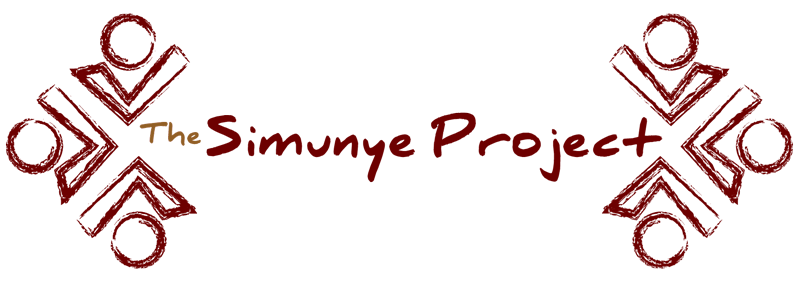
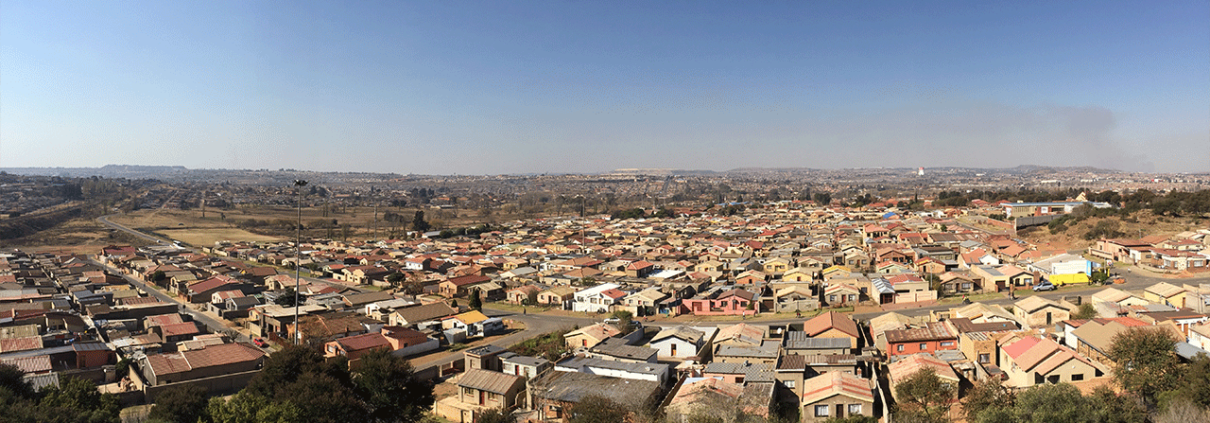
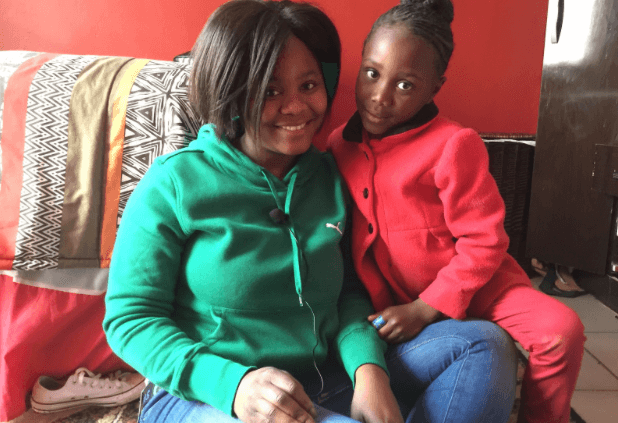
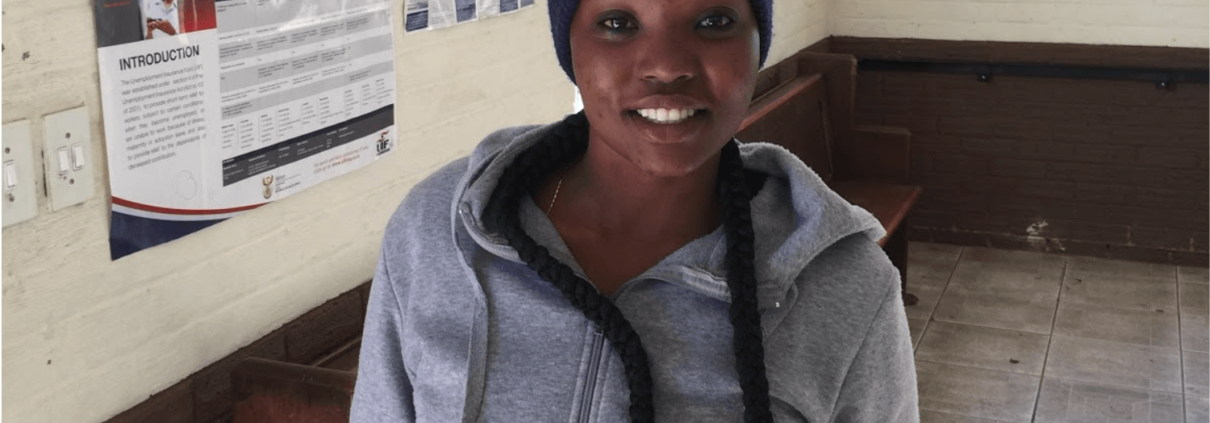
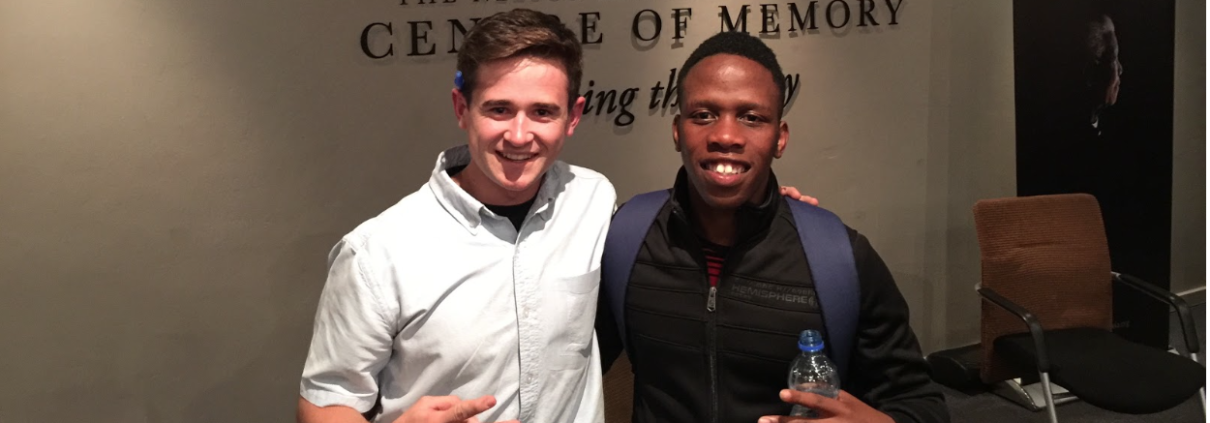
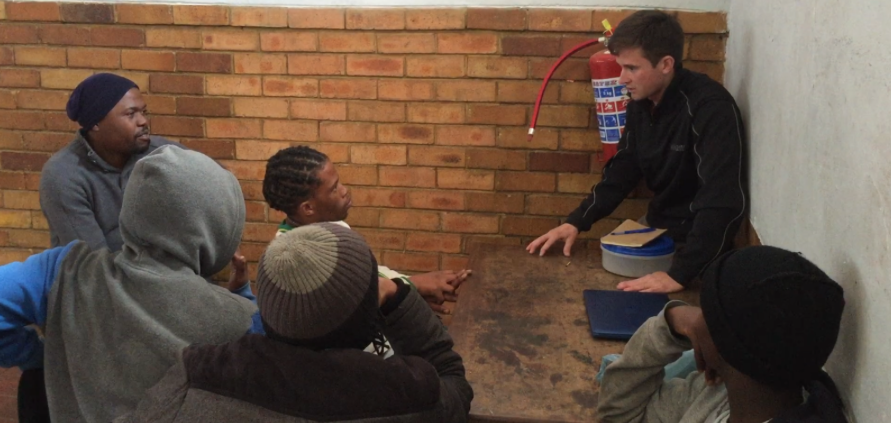

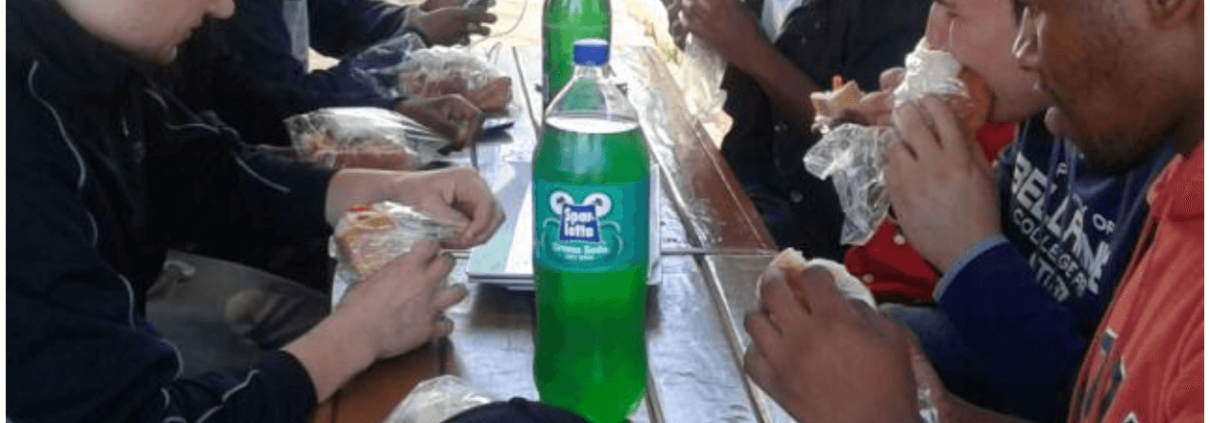
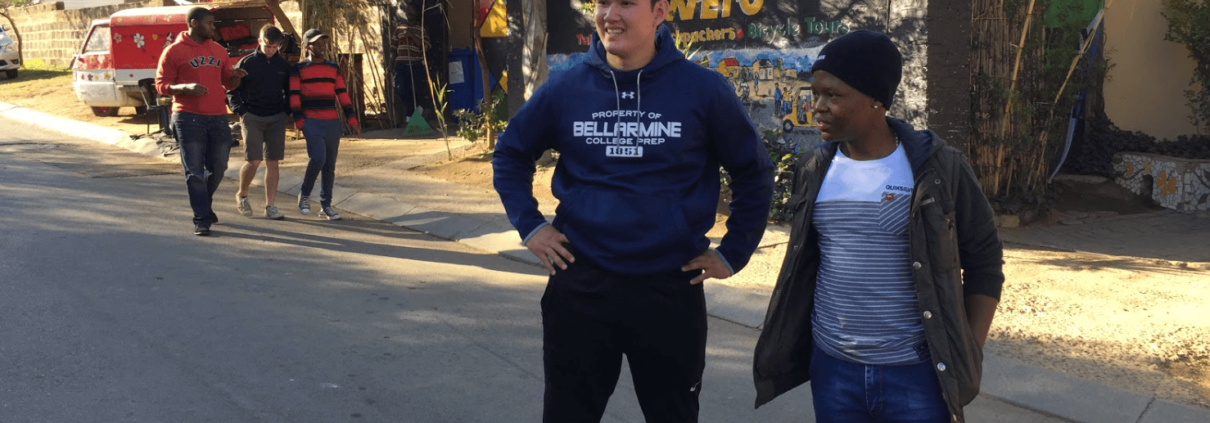
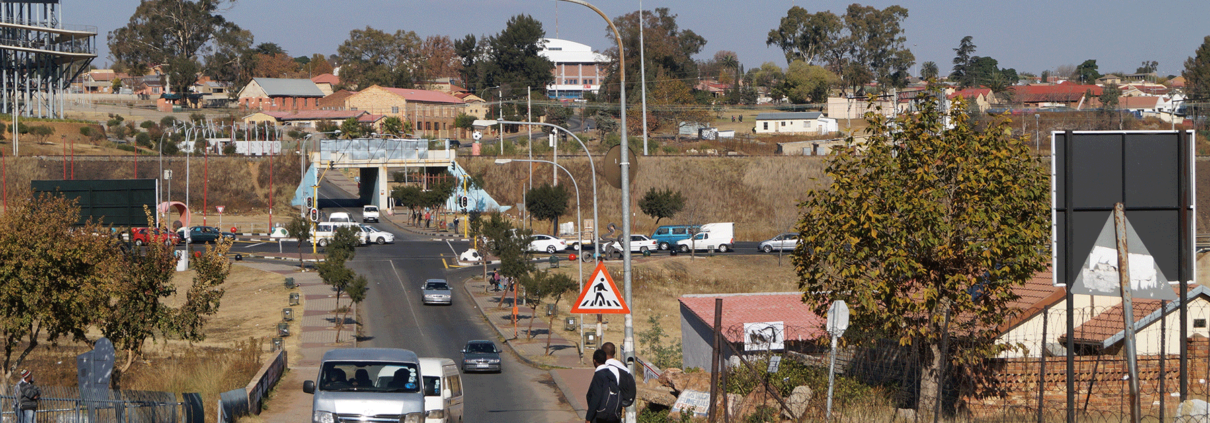
 Michael Bakan
Michael Bakan